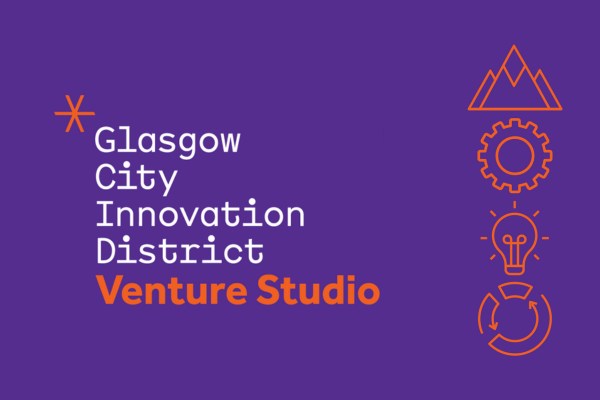
09 Jul 2024
Glasgow’s first Venture Studio dedicated to developing innovation-driven enterprises has been launched by the Glasgow City Innovation District (GCID).
The project is supported by Glasgow City Council and funded by the UK government through the UK Shared Prosperity Fund.
The GCID Venture Studio, in a pilot phase to 2025, will help founders based within Glasgow City to develop new ideas, products, and business models into high growth companies whilst supporting social innovation and community benefits.
The programme involves assembling teams of founders, designers, developers, and other experts within the studio to create, validate, build, and scale new business ideas.
Four pillars of activity are designed to support the needs of Glasgow’s digital, tech, engineering, and creative sectors – Challenge, Make, Innovate and Impact and a series of innovation programmes will be delivered where multiple projects and different businesses collaborate.
The first call is Challenge – Space Data for Industry that offers grant funding for Glasgow City-registered businesses selling or utilising innovative solutions that use space data to further collaborations with existing or potential customers.
Led by GCID, this challenge is in partnership with Scottish Enterprise’s mission programme team with support from the University of Strathclyde’s Space group and the West of Scotland Space Cluster, with successful companies receiving grants of up to £30,000 to deliver a service or product with space data at its core.
Applications for funding will be followed by workshops and focus groups to test the challenges and develop proposals with up to six awards being made. All successful projects will be expected to apply for larger rounds of funding to continue the work carried out as part of the Challenge.
Director of GCID, Alisdair Gunn, said: “The funding for the Venture Studio will support the development of innovation-driven businesses, products, and services, to create a leading international innovation hub at the centre of Glasgow City Innovation District for new product creation and collaboration which will support the future growth of Glasgow’s tech ecosystem.
“We’re excited to issue the first call for businesses to take part in the Challenge pillar, which is focused on Space.”
GCID, Scotland’s first innovation district, is a successful collaboration between the University of Strathclyde, Glasgow City Council, Scottish Enterprise, Glasgow Chamber of Commerce and Entrepreneurial Scotland.
Jane Martin, Managing Director of Innovation and Investment at Scottish Enterprise, said: “Working with businesses and partners such as universities and local authorities to create environments that encourage innovation will help us achieve our aim of doubling the number of scaleups in Scotland over the next ten years.
“The launch of the Venture Studio and the Space Data for Industry challenge is an important step in that direction. The challenge itself has the potential to unlock opportunities for space data companies with existing and new clients both domestically and internationally.”
The funding to support the scaling of inclusive innovation-led development initiatives follows on from the £33 million Innovation Accelerator Pilot investment awarded to the Glasgow City Region.
On making an allocation of SPF funding to GCID, Councillor Susan Aitken, Leader of Glasgow City Council, said: “Glasgow’s digital, tech, creative and engineering sectors are hugely important to the city and the whole city region.
“Our investment in the city’s first Venture Studio will further drive the innovation that is key to the city’s future economic growth. This is a very exciting project that brings together all the people necessary to develop the new business ideas, products and services in high-growth sectors that will create jobs and attract investment to Glasgow.”
The UK Shared Prosperity Fund is a central pillar of the UK government’s Levelling Up agenda and provides £2.6 billion of funding for local investment by March 2025. The Fund aims to improve pride in place and increase life chances across the UK investing in communities and place, supporting local business, and people and skills.